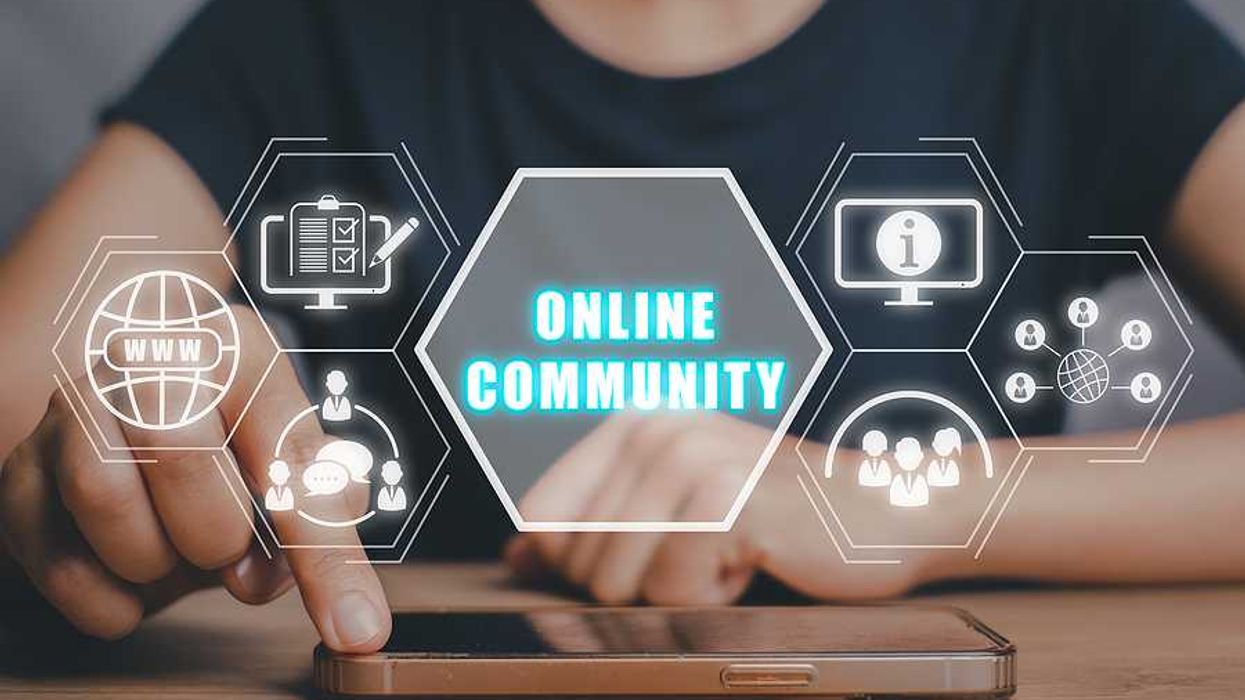The Biggest Lesson You’ve Learned As An Executive Through The COVID-19 Pandemic

We've all learned some lessons from the COVID-19 pandemic. Every disruption, every change, is a learning experience. And this year has seen a lot of both.
For leaders, these lessons can be especially powerful. Here's what a handful of our leading executives have learned through the COVID-19 pandemic.
Bonnie Patrick Mattalian, Multi-Unit Business Operations Executive

Bigstock
The pandemic didn't happen gradually. The experience was like a tidal wave. We saw it coming from reports from afar. Then, we felt it near us. And the next thing you know, it was in our communities, our businesses, and our homes.
We all shared that sick feeling in our stomachs anytime we watched the local or national news.
My family suffered the loss of fifteen family members and friends. Fifteen! And because things were the way they were, we could not even legitimately grieve.
At work, we scrambled to identify processes for layoffs, reorganizations, and business shutdowns.
Our home life turned upside down. Our residences quickly became workplaces, homeschools, restaurants, places of worship, movie theaters, playgrounds, gyms, barber shops/salons, and the only respite area.
Technology was our lifeline to our family, friends, physicians, workplace, entertainment, shopping, and so much more.
Many companies made difficult decisions to layoff staff, given their business situation. This was a challenging but predictable call for employers.
The Importance Of Connections
For those who are unemployed during the pandemic, jobs are few and far between. No longer does it make sense to apply for jobs, since at least a thousand other people are doing the same thing. The best tactics to find work today and stay gainfully employed are networking and identifying critical or innovative business solutions.
At the start of the crisis, we had calls with our teams daily. Changes were happening, and business was devolving that quickly. The teams immediately began sharing information and best practices. Sharing experiences with others in a similar circumstance proved to be essential for emotional support.
Despite a job loss, the thread that held those work connections together continued after the fact.
Connective Actions
During this pandemic, connections are what has held us together and it's what's moving us forward.
How many industries saw informal groups begin to connect, and continue to do so now? Thought leaders are avidly posting and connecting on social media to provide solutions. There are webinars hourly on every topic imaginable to help bring people together to solve the business, social, health, and economic issues that continue to plague our world.
I know that I have connected with more people in the past four months than I have in the past six years. That includes reconnecting with friends and reaching out to new contacts, to offer support or to move a new relationship forward.
I'm eternally grateful to the thousands of people and organizations that have removed barriers to help humanity and bring us all together during this crisis. Those actions have forever impacted the trajectory of so many individuals and will move us towards a favorable recovery in the near future.
Bonnie Patrick Mattalian builds high-performing teams and businesses in both the private and not-for-profit sectors. An engaging and collaborative leader of multi-unit operations, Mattalian has improved EBITDA by 3-12% annually with proven solutions for customer experience delivery success, financial profitability analytics, strategic planning, and team leadership development. She has facilitated the successful launch of more than 60 businesses throughout her career, turnarounds for another 20 locations, and was most recently responsible for a book of business for a global company of more than $25M in revenues and 1200+ employees.
Steve Barriault, Global Technology Sales Leader

Bigstock
The biggest lesson? The value of momentum and the importance of not resting on your laurels.
It is not something brand new to me. During my academic and professional career, I always made a point to do things in advance whenever possible.
Just like I was planning my projects well in advance during my master's so I never had to pull an all-nighter just before the deadline, I always, always tried to build a full pipeline that did not hinge on one or two mega-deals. Because when these did not pan out last minute, I wanted to have jokers up my sleeves.
In retrospect, this mentality served me well. I kept on hitting my numbers. And I had owners that did not ask for the impossible.
So, this is not a new lesson. But it is a useful reminder. I saw territories that had momentum in February do quite well during the pandemic. Sure, some projects got delayed, but they had a sufficiently deep pipeline to keep on churning revenue. We have well-trained, dedicated people, and that lessened the negative impact of COVID-19 on our sales.
On the other hand, I also saw different situations happening (not to me, thank God!), where teams got caught in the storm. They did not have momentum going in—perhaps some felt that things would "just fix themselves" naturally by being a tad more patient.
The fact is, you never know what kind of curveball life can throw at you.
As an executive, you always have to prepare for all contingencies. That doesn't mean being impatient or putting your teams under enormous stress. But it means having the maturity and self-awareness to realize when things are not quite right, and the courage to fix them.
Yes, even when you are doing well, and it seems your organization can do no wrong, always plan for contingencies, and always ensure you have momentum on your side because you never know when the wind will turn.
Steve Barriault is a global technology sales executive with 18+ years of experience in business development on three continents. He is currently serving in a 3,000 employee-strong company providing embedded software testing solutions in multiple industries such as automotive, avionics, industrial systems, telecom, and others. Multilingual, he holds advanced degrees in business, science, and computer science.
Susan Leys, Healthcare Coach, Consultant, And Career Navigator

Bigstock
The biggest lesson I've learned as an executive through the COVID-19 pandemic is about collaboration and the abundance of angels walking among us. In healthcare, mastering the art of collaboration has been a huge factor in making a hospital successful. How well teams collaborate interpersonally and across levels of care has been critical for the provision of care for patients and families and the patient experience overall.
Healthcare professionals (like other essential professionals) work at all hours during the day and night as well as weekends and holidays providing care for us when we need them. During the COVID-19 pandemic, however, many nurses, physicians, and techs have placed their own lives at risk by traveling into areas where the pandemic has hit the hardest and without always having the personal protective equipment they have needed to protect themselves.
Try to imagine just one day the life of a physician or nurse: you get dressed and kiss your family goodbye and leave for work. Once you arrive, you put on your scrubs, protective gown, mask, gloves, face shield, and walk into your patient's room to care for them. It only takes a split-second glance from your patient to see all of your protective gear, which validates how contagious their COVID-19 virus is. And because their families cannot visit in person to hold their hand, to pray with them, stroke their hair, and tell them how much they are loved, this responsibility falls to you to compassionately let them know that they are supported. Hopefully, you can help them connect to their family by Zoom, all while also using the extensive insight, knowledge, experience, and clinical skills you possess to provide care for them and help them fight on or let go.
Hour after hour, shift after shift, day after day, you provide care for patients in hospitals across the country during a pandemic that continues to traverse our country.
And at the end of your shift, you take your PPE gear off, label what is yours say "goodbye" and have supportive conversations with your team, and then go back home, hoping your family hasn't been exposed and that everyone's okay. You have an abundance of feelings and emotions from your day as you do every day, but for now, you put them aside so you can spend time with the people you love the most, have a meal, and then get some sleep before you have to do it all over again on your next shift.
There is an abundance of angels among us.
S.A. Leys is a coach, consultant and career navigator at https://www.coachingfornurses.io. We provide coaching, consulting, and debriefing for the healthcare professionals and teams who care for all of us. Follow our hashtag #debriefyourteam on LinkedIn to receive information and strategies to assist your team with coping and retention strategies.
Dr. Jan Urbahn, Automotive & Shared Mobility Executive

Bigstock
I have two things I've learned from the pandemic. The first thing is to engage third party sources and trust scientific analysis. In mid-January 2020, the virus had been in the news for three weeks and I was receiving a rush air freight delivery of electronic parts from Hong Kong in New York, for immediate delivery. There was little information available anywhere about best practices. An online search through several medical journals brought up a just-published article from frontline doctors in Wuhan who were reporting on potential transmission through surfaces. Based on the article, we decided to disinfect the entire delivery and have staff wear PPE. In hindsight it was a good decision to trust direct medical information early on.
The second thing I learned is that for a comprehensive response, all divisions of the business have to work closely together. When the U.S. approached the lockdowns in March, supply lines dried up and in order to get reasonable pricing on basic supplies like disinfectants, one needed to buy larger than normal quantities. That presented new challenges for all teams involved, including purchasing, finance, administration, and operations. Looking back, I would have started even earlier with an integrated response team.
Dr. Jan Urbahn is an automotive executive with 20+ years of experience in product development, safety engineering, and operations in automotive and shared mobility business. He helped launch 3 new businesses with up to 1,500 shared cars in fleet size. His most recent leadership position is within the shared mobility space, where he helped develop a new EV battery and guided the coronavirus response.
Andrea Bjorkman, HR Executive & Knackstor Global Co-Founder

Bigstock
I am a lifelong learner, and that has always helped me succeed. I am grateful for my parents and the outstanding teachers that helped instill that in me. But never in my lifetime has this been as important as it has during this pandemic. My biggest lesson learned is the need to seek out these learnings in new and different ways and the required immediacy to capitalize on and implement my newfound knowledge and thinking.
William Glasser expounded on the many ways we learn:
10% of what we read.
20% of what we hear.
30% of what we see.
50% of what we both hear and see.
70% of what is discussed.
80% of what we experience personally.
95% of what we teach to someone else.
One of the most effective ways to learn in these times is by collaborating with others. According to Carol Valone Mitchell and Steve Heinen, "Covid-19 has presented us with both a health crisis and an economic crisis, which present a great deal of uncertainty, complexity, and ambiguity. No one person has the necessary knowledge and experience to solve these problems alone — it requires multiple people with different kinds of expertise and the ability to work together to create novel solutions."
Of course, this entire article represents the collaboration of leaders at its finest. We learn from each other. We read, hear, see, share our experiences, and teach others through venues like this. We then make the necessary changes needed to help our employees, and ultimately, our organizations succeed.
Andrea Bjorkman is an HR executive with broad-based business and HR experience. Most recently, she has taken her passion for innovative ideas to help meet underserved markets to her new role as Co-Founder/Managing Director (USA), Brand Knackstor Global, Blue Hour Moon Technologies Corp.
The lessons we've learned from COVID-19 have made us the professionals we are today. Like these executives, we should cherish the opportunity to learn even more from this crisis—because it still has a lot to teach us.
Ready to take your executive presence to the next level? Check out Work It Daily's Executive Presence Program today!
- 3 Things All Employees Will Need After COVID-19 - Work It Daily ... ›
- How To Transform Your Business For Success Post-COVID-19 ... ›
- 4 Things Businesses Can Learn From COVID-19 - Work It Daily ... ›

 Bigstock
Bigstock Bigstock
Bigstock Bigstock
Bigstock


